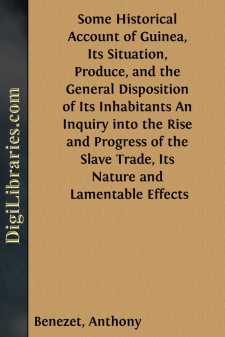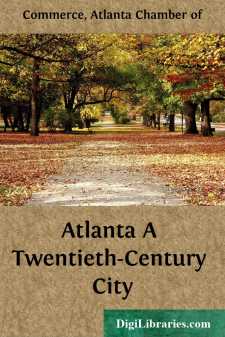Fiction
- Action & Adventure 183
- Biographical 15
- Christian 59
- Classics
- Coming of Age 5
- Contemporary Women 3
- Erotica 9
- Espionage/Intrigue 12
- Fairy Tales, Folklore & Mythology 236
- Family Life 169
- Fantasy 117
- Gay 1
- General 596
- Ghost 32
- Historical 808
- Horror 43
- Humorous 161
- Jewish 25
- Legal 4
- Medical 22
- Mystery & Detective 315
- Political 49
- Psychological 41
- Religious 64
- Romance 160
- Sagas 11
- Science Fiction 730
- Sea Stories 113
- Short Stories (single author) 537
- Sports 10
- Suspense 1
- Technological 8
- Thrillers 2
- Urban Life 31
- Visionary & Metaphysical 1
- War & Military 173
- Westerns 199
Classics Books
Sort by:
by:
Marie Corelli
CHAPTER I THE KING'S PLEASAUNCE "In the beginning," so we are told, "God made the heavens and the earth." The statement is simple and terse; it is evidently intended to be wholly comprehensive. Its decisive, almost abrupt tone would seem to forbid either question or argument. The old-world narrator of the sublime event thus briefly chronicled was a poet of no mean quality, though...
more...
by:
Charles Kingsley
PRELUDE. The heroic deeds of Highlanders, both in these islands and elsewhere, have been told in verse and prose, and not more often, nor more loudly, than they deserve. But we must remember, now and then, that there have been heroes likewise in the lowland and in the fen. Why, however, poets have so seldom sung of them; why no historian, save Mr. Motley in his "Rise of the Dutch Republic," has...
more...
by:
John Trevena
INTRODUCTION For eight years or more, since I first became acquainted with the novels and tales of John Trevena it has been my firm conviction that only Thomas Hardy and George Moore among contemporary novelists rival his art at its best. Like Meredith, he has written for twenty years in obscurity, and like Meredith also he has been content with a small discriminating audience. I suppose that in 1950...
more...
by:
Dick Francis
y name is Andrews, third assistant vice president in charge of maintenance for Cybernetic Publishers. It is not generally known that all the periodical publications for the world were put out by Cybernetics. We did not conceal the monopoly deliberately, but we found that using the names of other publishing houses helped to give our magazines an impression of variety. Of course, we didn't want too...
more...
THE SERPENT KNIGHT Signelil sits in her bower alone,Of her golden harp she waked the tone. Beneath her mantle her harp she played,Then in came striding the worm so laid. “Proud Signelil, if thou me wilt wed,I’ll give thee store of gold so red.” “Forbid the heavenly God so greatThat I should become the Lindworm’s mate.” “Since thee I may not for a wife acquire,Kiss me only and I’ll...
more...
by:
Anthony Benezet
CHAP. I. Guinea affords an easy living to its inhabitants, with but little toil. The climate agrees well with the natives, but extremely unhealthful to the Europeans. Produces provisions in the greatest plenty. Simplicity of their housholdry. The coast of Guinea described from the river Senegal to the kingdom of Angola. The fruitfulness of that part lying on and between the two great rivers Senegal and...
more...
MY DEAR SIR: I am on the point of revising and considerably altering, for republication in England, an edition of such amongst my writings as it may seem proper deliberately to avow. Not that I have any intention, or consciously any reason, expressly to disown any one thing that I have ever published; but some things have sufficiently accomplished their purpose when they have met the call of that...
more...
CHAPTER I "Hi, there! Mikky! Look out!" It was an alert voice that called from a huddled group of urchins in the forefront of the crowd, but the child flashed past without heeding, straight up the stone steps where stood a beautiful baby smiling on the crowd. With his bundle of papers held high, and the late morning sunlight catching his tangle of golden hair, Mikky flung himself toward the...
more...
How Atlanta Grew. The Atlanta of to-day is a growth of thirty-eight years. Twice has the upbuilding of a city on this site demonstrated its natural advantages. Within a few years before the war Atlanta had become a bustling town of 11,000 inhabitants, and during the three years which intervened before its destruction the place was the seat of varied and important industries, whose principal object was...
more...
CHAPTER I The Wiles of Womankind Archibald Rushford, tall, lean, the embodiment of energy, stood at the window, hands in pockets, and stared disgustedly out at the dreary vista of sand-dunes and bathing-machines, closed in the distance by a stretch of gray sea mounting toward a horizon scarcely discernible through the drifting mist which hung above the water. "Though why you wanted to come here at...
more...











